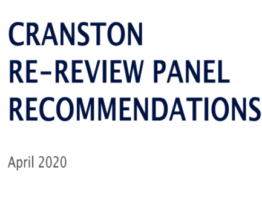
On 11 July 2018, the All Party Parliamentary Group (“APPG”) on Fair Business Banking published its long awaited report entitled “Fair Business Banking for All – How to improve access to justice for business in financial services disputes”.
In its report, the APPG highlight several, fundamental, problems that companies, particularly small to medium enterprises (“SMEs”), face when seeking to litigate or resolve disputes with banks and other financial institutions.
These problems include:
- The limitations of the overstretched Financial Ombudsman Service (the “FOS”), which does not apply common law principles, but rather a dispute resolution test of what is “fair and reasonable”, is only appropriate for claims up to a value of £150,000 and has narrow eligibility criteria.
- The cost of litigation, particularly in the Commercial Court, and the effect of this on a company’s cashflow and contingent risk-planning.
- The difficulty in obtaining litigation funding and after the event insurance for lower-value claims of between £1 million to £5 million.
- The length of commercial court disputes.
- The invariably aggressive and heavy-handed approach of banks to litigation.
- The current lack of any regulatory protection for commercial lending.
- The inability of companies to bring a direct, private-law, action against a bank or other institutions operating in a regulated selling environment for a breach of the Conduct of Business Rules (“COBS”) and that corresponding ability of banks under English Common Law to exclude or limit their liability against companies for breaches of the subject matter of those rules.
The central premise of the APPG’s report, which was endorsed in full by Lord Dyson, the Master of the Rolls, is that there is currently a gross inequality of arms between financial service providers and SMEs, which could and should be bridged by a new Financial Services Tribunal (“FST”) and relatively minor accompanying changes to the regulatory landscape.
Tribunals have a number of advantages over the regular court system.
In particular:
- They are low cost: The default position is usually that costs do not follow the event in the sense of the loser being ordered to pay the winner’s costs and, effectively, “bet the company” in the absence of ATE insurance.
- They are speedy, typically reaching decisions within 6 months.
- They are partly inquisitorial, rather than adversarial, meaning that Tribunal judges can intervene to explore points and assist a lay claimant in getting to the truth.
- They are able to build up specialist knowledge and experience, through their focus and the industry experience of those that sit upon them.
- They have been proven (certainly in an employment context) to help to bring about a change of culture, which is desperately needed in the area of banking.
A FST could therefore open up an alternative, speedy and low-cost, form of justice to companies facing difficulties withbanks and other service providers and help to bridge the lacuna that undoubtedly exists at present between the FOS and the High Court.
The APPG’s report comes at an important time. The role and the ability of the FOS to handle complaints has been under the spotlight and has come under renewed scrutiny lately.
In January 2018, the FCA announced proposals to extend the remit of the FOS to allow more SMEs to refer disputes to it. Proposals include expanding the jurisdiction of the FOS to include unregulated activities such as commercial lending and widening the eligibility criteria to all businesses with fewer than 50 employees, an annual turnover of under £6.5m and an annual balance sheet of under £5m.
However, on 23 July 2018, Nicky Morgan MP of the Treasury Select Committee wrote to the FCA and expressed her concerns regarding the ability of the FOS to deal with an increase in its remit within the ambitious timeframe proposed by the FCA, which would see the changes taking effect by the end of this year. Ms Morgan’s comments were prompted by an independent report by Richard Lloyd, following a Channel 4 Dispatches investigation which raised serious concerns about the way in which complaints were being handled by the FOS.
Importantly, the FCA’s proposals do not go far enough to address the problems faced by SMEs or provide a suitable mechanism for redress against financial service providers, a view which has been endorsed by the APPG.
It is clear that a fundamental change to the culture and manner in which such disputes are handled is required and the creation of FST might well provide the long-awaited answer.
DS Law fully support this initiative and were proud to be consulted by the APPG prior to the release of its report.
This article is for information purposes only and is not legal advice. No reliance may be placed upon it and the firm accepts no responsibility for the accuracy of its content.







Write a comment:
You must be logged in to post a comment.